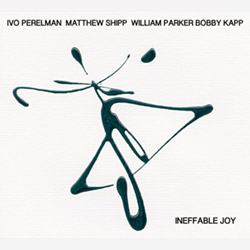
Brazilian saxophonist Ivo Perelman's goal to release on the historical ESP label originated from the impression Gato Barbieri's 1967 ESP album left on him, here assembling ESP alumni, drummer Bobby Kapp, pianist Matthew Shipp and bassist William Parker (who made his recorded debut on ESP in 1973), in a lyrical album of advanced and impressive collective free jazz.
Out of Stock
Quantity in Basket: None
Log In to use our Wish List
Shipping Weight: 3.00 units
Sample The Album:
William Parker-bass
Bobby Kapp-drums
Matthew Shipp-piano
Ivo Perelman-tenor saxophone
Click an artist name above to see in-stock items for that artist.
UPC: 825481503624
Label: ESP
Catalog ID: ESPDISK 5036CD
Squidco Product Code: 28081
Format: CD
Condition: New
Released: 2019
Country: USA
Packaging: Digipack
Recorded at Park West Studios, in Brooklyn, New York, on April 21st, 2018, by Jim Clouse.
"In 1967 Gato Barbieri's album on ESP In Search of the Mystery had a profound effect on a young fellow South American tenor player - that player was Ivo Perelman. Now, Perelman himself has recorded with the same label and includes Bobby Kapp the same drummer who was on Gato's album. Alongside Bobby Kapp, Perelman has enlisted bass player William Parker and his long-time collaborator Matthew Shipp on piano. Each of the musicians brings their own distinctive avant garde style to this recording and although Parker and Shipp have made multiple albums with Perelman, and each has played together before, their interplay remains fresh .
Ineffable Joy opens with 'Ecstacy' which announces itself with deep piano and bass before Perelman's tenor sings across the top line, rich, multi-registered themes emerging whilst the drums emphasise the varied licks and quibbles introduced. Parker's bass lines emerge from the depths, adding layers of resonant support and at times where piano meets bass, the lines created are liquid, like flowing rivers. The track builds to a crescendo which then descends to a gentle quietude. 'Ineffable Joy' is a lovely track with all musicians adding their quirky, definitive characterisation to the music, a mix of staccato, from piano and bass over which Perelman's sax sings, sighs and wavers , underpinned by percussion which is light yet fearsome and emerges into a drum solo which is heavy, rhythmic and glorious before the sax and sawn bowed bass take over and bring the track to its harmonic end.
'Jubiliation' sets out in a swinging style, the rhythm set out by the piano and bass in beautiful counter rhythms with each other creating a joyous free-bop introduction. There is a lovely descent from the piano chords, under which the bass and percussion provide solid support before the tenor of Perelman joins to add to the layers and lifts the octaves, sailing over the top, part altissimo, part lower registers. Regular interwoven themes come together and depart in different directions through the track, creating earworms which prevail. 'Ebullience' defies the title with its gentle melodic tenor theme over the top of gentle percussion and pervasive gravitas bass lines at the outset but works towards a regular beat section with bass and sax working together whilst the piano line offers contrasting harmonics in the chords.
'Bliss' is a lively affair with the musicians diversifying almost immediately , each travelling their own distinct path, coming together, then veering off in energetic pathways, which occasionally cross. Perelman here is intense and fractious in his delivery, creating a pivot around which the others work - and work well. The middle section is a contrast with open, lighter harmonies and a delicate percussion which serves to add accents and emphasis before the final, piano-driven section which sees bass and piano working the lower levels together whilst drums continue the pulse and Perelman drops out before re-entering on even more ferocious terms. Glorious. Again, there is a contrasting drop to quietude at the end.
'Elation' begins with soft piano over which the percussion skitters and plays before the tenor introduces a melodic theme and the bass fills the gaps in the extended chordal lines. The rhythm does not seem to establish in this track, and it feels a little lost for a while before the piano asserts a slow but insistent cadence which is carried to the end. 'Rejoicing' contains different patterns from each musician, coming together to create a patchwork of sound which melds into a comprehensive, yet characterful interlude, with roughly bowed bass adding yet more texture and friction to the mix. A set of repeated chords from the piano offers Perelman an opportunity to counter with a melodic ascent - and he take it with relish. The drum and bass conversation in the middle section is clever and luxuriously laden with echoes and crossovers as the deep reverberations are picked up by the bass, which emerges in its own line, picked up and extended by Perelman's tenor. 'Exuberance' tops out the CD with all the musicians coming together in expressive expression of the freedom that this music allows. Complex melody lines are interwoven and combined with dazzling dexterity and Perelman's tenor sax shines on this track.
This is a CD which uses the characters and distinctive styles which each musicians brings to the table, yet also combines them in many places to create new and different expressions. There is an exploration of ideas and different patterns throughout. A brave man is Perelman, bringing together musicians who each have such a distinctive style, this CD is an example of how it can work, and work well."-Sammy Stein, The Free Jazz Collective
Get additional information at The Free Jazz Collective
Artist Biographies
• Show Bio for William Parker "William Parker is a bassist, improviser, composer, writer, and educator from New York City, heralded by The Village Voice as, "the most consistently brilliant free jazz bassist of all time." In addition to recording over 150 albums, he has published six books and taught and mentored hundreds of young musicians and artists. Parker's current bands include the Little Huey Creative Music Orchestra, In Order to Survive, Raining on the Moon, Stan's Hat Flapping in the Wind, and the Cosmic Mountain Quartet with Hamid Drake, Kidd Jordan, and Cooper-Moore. Throughout his career he has performed with Cecil Taylor, Don Cherry, Milford Graves, and David S. Ware, among others." ^ Hide Bio for William Parker • Show Bio for Bobby Kapp "Few men have the musical experience, ability, and most importantly, intellectual perspective possessed by the jazz musician Bobby Kapp. In combination with a natural rhythmic sense, he is a force to be reckoned with as a vocalist and lyricist. He has been called a romantic, a Jazz Ambassador, an expatriate, and most importantly, a master musician; and to finish his most recent projects Themes 4 Transmutation and Cilla Sin Embargo, Bobby had to be all of these at once. His journey to becoming a man capable of wearing so many hats began in New Jersey, as a child who liked to sing. Singing came before anything else. But as Bobby entered his teenage years, an opportunity to make money at his father's Tire Factory appeared, and with that hard-earned cash he bought his first drum set. At sixteen, he secured his first drumming gig with a group called George Ruben and the Stardusters, and began recognizing the reality of the musicians' life as something that he desired for himself. As his teenage years came to a close, he began sneaking off to Staten Island, and there found an affinity for the blues that derailed any possibility of staying in New Jersey. For young musicians in the New York and New Jersey area in the 1960's, the resorts and vacation towns of Catskill Mountains were the ground floor to musical success. There young men could play, earn money, live with free room and board, drink beer and most importantly, develop their chops. What drove Bobby to the Catskills was the idea that he wasn't supposed to seek the musician's lifestyle, and, most importantly, the blues that he'd grown to love in Staten Island. There, he developed into a man who could make a living playing drums and singing, without ever ceasing to study the craft of his profession. When life became complex in the US, Bobby's solution was simple: head South. Since making that decision, he has become a fixture for San Miguel De Allende in Mexico City. Some of the most important relationships in Bobby's life began and developed here, including his romance with Cilla, who is the inspiration for the recent album "Cilla Sin Embargo." On top of this romantic necessity for making a new album, his recent musical explorations have again taken him on both sides of the border, through complex, different musical cultures, where the industry splits at the seams for both legal and social reasons. Themes 4 Transmutation, is his latest EP. It is experimental, completely free form jazz recorded in October, 2014, in New York City at Systems 2 studios, under Bobby's supervision. In the same vein tapped by Miles Davis during the composing and performance of "Kind of Blue," Bobby found the greatest pure improvisational jazz musicians New York had to offer: Tyler Mitchell on bass, Matthew Shipp on keys, and Ross Moshe playing saxophone. With little to no direction, and having never met each other before, the musicians delivered what Bobby and critics consider a masterpiece in freeform jazz. Two months later, Bobby and his team were in Cuba, via Mexico, in the very last days before the U.S. embargo was eased. Originally meant as a gesture of dedication to the woman he loves, his latest project that has taken on a much larger meaning than was originally intended, becoming the first look for many Americans into the Cuban jazz scene without the overtone of economic tension... sin embargo. So how was Bobby able to make two separate albums, in separate countries that at the time of the recording, were culturally exclusive of each other? What was needed to make it happen? "Resolving conflict is a problem thousands of years old. Good manners are the common denominator. In music you can have different points of view but still make sense of out the whole thing, in a peaceful beautiful way." " ^ Hide Bio for Bobby Kapp • Show Bio for Matthew Shipp "Matthew Shipp was born December 7, 1960 in Wilmington, Delaware. He started piano at 5 years old with the regular piano lessons most kids have experienced. He fell in love with jazz at 12 years old. After moving to New York in 1984 he quickly became one of the leading lights in the New York jazz scene. He was a sideman in the David S. Ware quartet and also for Roscoe Mitchell's Note Factory before making the decision to concentrate on his own music. Mr Shipp has reached the holy grail of jazz in that he possesses a unique style on his instrument that is all of his own- and he's one of the few in jazz that can say so. Mr. Shipp has recorded a lot of albums with many labels but his 2 most enduring relationships have been with two labels. In the 1990s he recorded a number of chamber jazz cds with Hatology, a group of cds that charted a new course for jazz that, to this day, the jazz world has not realized. In the 2000s Mr Shipp has been curator and director of the label Thirsty Ear's "Blue Series" and has also recorded for them. In this collection of recordings he has generated a whole body of work that is visionary, far reaching and many faceted." ^ Hide Bio for Matthew Shipp • Show Bio for Ivo Perelman "Born in 1961 in São Paulo, Brazil, Perelman was a classical guitar prodigy who tried his hand at many other instruments - including cello, clarinet, and trombone - before gravitating to the tenor saxophone. His initial heroes were the cool jazz saxophonists Stan Getz and Paul Desmond. But although these artists' romantic bent still shapes Perelman's voluptuous improvisations, it would be hard to find their direct influence in the fiery, galvanic, iconoclastic solos that have become his trademark. Moving to Boston in 1981, to attend Berklee College of Music, Perelman continued to focus on mainstream masters of the tenor sax, to the exclusion of such pioneering avant-gardists as Albert Ayler, Peter Brötzmann, and John Coltrane (all of whom would later be cited as precedents for Perelman's own work). He left Berklee after a year or so and moved to Los Angeles, where he studied with vibraphonist Charlie Shoemake, at whose monthly jam sessions Perelman discovered his penchant for post-structure improvisation: "I would go berserk, just playing my own thing," he has stated. Emboldened by this approach, Perelman began to research the free-jazz saxists who had come before him. In the early 90s he moved to New York, a far more inviting environment for free-jazz experimentation, where he lives to this day. His discography comprises more than 50 recordings, with a dozen of them appearing since 2010, when he entered a remarkable period of artistic growth - and "intense creative frenzy," in his words. Many of these trace his rewarding long-term relationships with such other new-jazz visionaries as pianist Matthew Shipp, bassists William Parker, guitarist Joe Morris, and drummer Gerald Cleaver. Critics have lauded Perelman's no-holds-barred saxophone style, calling him "one of the great colorists of the tenor sax" (Ed Hazell in the Boston Globe); "tremendously lyrical" (Gary Giddins); and "a leather-lunged monster with an expressive rasp, who can rage and spit in violence, yet still leave you feeling heartbroken" (The Wire). Since 2011, he has undertaken an immersive study in the natural trumpet, an instrument popular in the 17th century, before the invention of the valve system used in modern brass instruments; his goal is to achieve even greater control of the tenor saxophone's altissimo range (of which he is already the world's most accomplished practitioner). Perelman is also a prolific and noted visual artist, whose paintings and sketches have been displayed in numerous exhibitions while earning a place in collections around the world." ^ Hide Bio for Ivo Perelman
12/17/2025
Have a better biography or biography source? Please Contact Us so that we can update this biography.
12/17/2025
Have a better biography or biography source? Please Contact Us so that we can update this biography.
12/17/2025
Have a better biography or biography source? Please Contact Us so that we can update this biography.
12/17/2025
Have a better biography or biography source? Please Contact Us so that we can update this biography.
Track Listing:
1. Ecstasy 6:56
2. Ineffable Joy 3:54
3. Jubilation 7:17
4. Ebullience 3:42
5. Bliss 8:45
6. Elation 4:43
7. Rejoicing 7:33
8. Exuberance 7:21
Improvised Music
Jazz
Free Improvisation
NY Downtown & Metropolitan Jazz/Improv
Quartet Recordings
Collective Free Improvsation
ESP
Staff Picks & Recommended Items
Search for other titles on the label:
ESP.


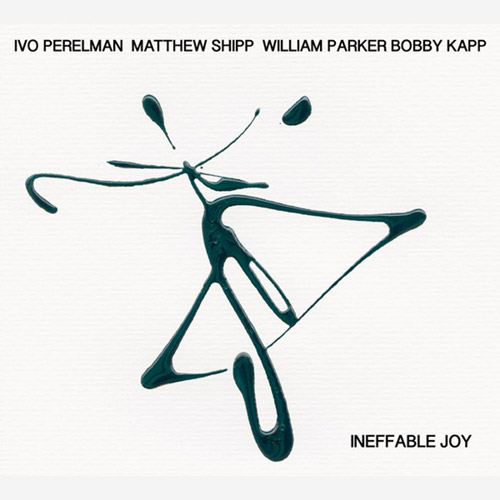
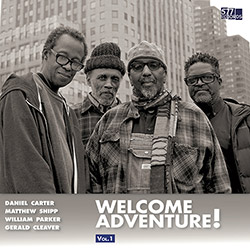
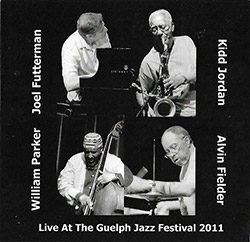
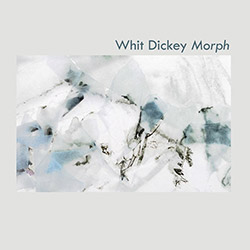
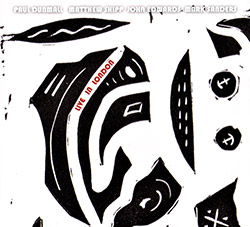

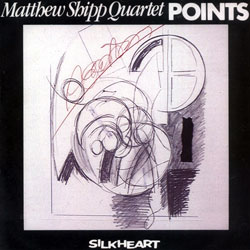



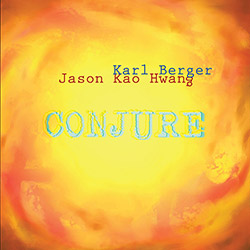

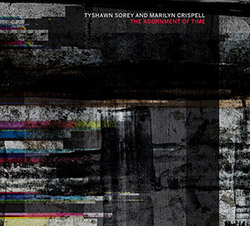
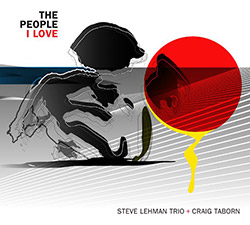

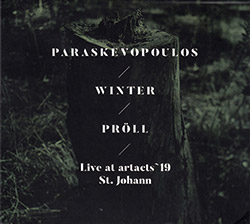

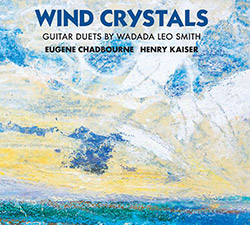


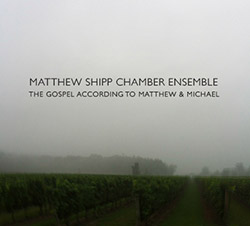


![HobbyHouse (Mia Dyberg / Axel Filip): HobbyHouse [CD + DOWNLOAD]](https://www.teuthida.com/productImages/misc4/36944.jpg)
![Mines, Kelsey / Erin Rogers: Scratching At The Surface [CD + DOWNLOAD]](https://www.teuthida.com/productImages/misc4/36945.jpg)
![Nebbia, Camila (feat/ Marilyn Crispell / Lesley Mok): A Reflection Distorts Over Water [CD + DOWNLOAD]](https://www.teuthida.com/productImages/misc4/36946.jpg)
![Vanheerentals, Adia: Taking Place [CD + DOWNLOAD]](https://www.teuthida.com/productImages/misc4/36947.jpg)
![Mines, Kelsey / Vinny Golia: Collusion and Collaboration [CD + DOWNLOAD]](https://www.teuthida.com/productImages/misc4/36948.jpg)
![Parkins, Zeena: Lament For The Maker [CD + DOWNLOAD]](https://www.teuthida.com/productImages/misc4/36949.jpg)
![Evans, Peter / Mike Pride : A Window, Basically [CD + DOWNLOAD]](https://www.teuthida.com/productImages/misc4/36950.jpg)


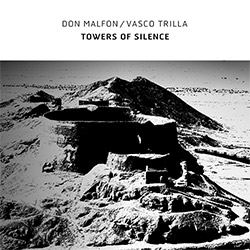
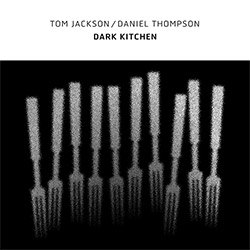
![Frey, Jurg : Composer, Alone [3 CDs]](https://www.teuthida.com/productImages/misc4/36927.jpg)
![Belorukov, Ilia / Alex Riva: Wrestling For Futility [CASSETTE w/DOWNLOAD]](https://www.teuthida.com/productImages/misc4/36994.jpg)
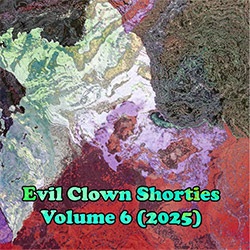
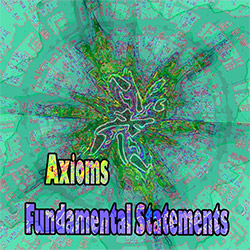










![Agnel, Sophie: Learning [VINYL]](https://www.teuthida.com/productImages/misc4/36841.jpg)

![Monaco, Amanda (w/ Michael Attias / Sean Conly / Satoshi Takeishi) : Deathblow [VINYL+ DOWNLOAD]](https://www.teuthida.com/productImages/misc4/36956.jpg)
![Frey, Jurg with ensemble]h[iatus: Je Laisse A La Nuit Son Poids D](https://www.teuthida.com/productImages/misc4/36988.jpg)
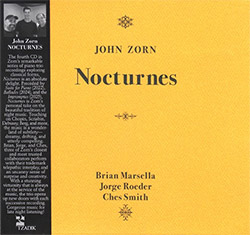
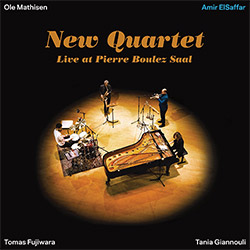
![ElSaffar, Amir / New Quartet : Live at Pierre Boulez Saal [VINYL]](https://www.teuthida.com/productImages/misc4/36830.jpg)

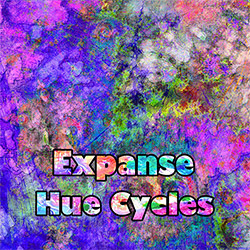
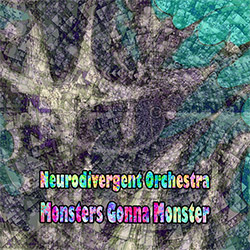


![Musicworks Magazine: #152 Fall 25 [MAGAZINE + CD]](https://www.teuthida.com/productImages/misc4/37004.jpg)
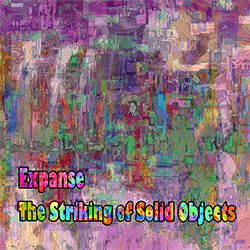




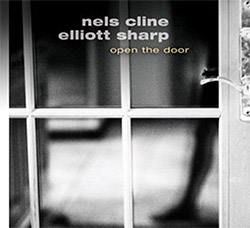
![[ahmed] (Thomas / Grip / Gerbal / Wright): Sama](https://www.teuthida.com/productImages/misc4/36976.jpg)

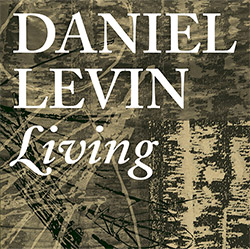
![Cleaver, Gerald / Brandon Lopez / Hprizm: In The Wilderness [COLOR VINYL]](https://www.teuthida.com/productImages/misc4/33060.jpg)
![McPhee, Joe : Defiant Jazz: a Joe McPhee Taster [VINYL]](https://www.teuthida.com/productImages/misc4/36859.jpg)
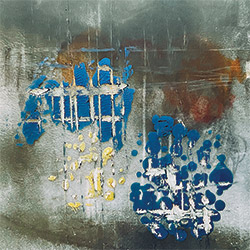
![Mateen, Sabir / Patrick Holmes / Federico Ughi : Survival Situation [LTD VINYL LP + DOWNLOAD]](https://www.teuthida.com/productImages/misc4/29891.jpg)
![Tucker, Dave / Pat Thomas / Thurston Moore / Mark Sanders: Educated Guess Vol. 1 [COLORED VINYL]](https://www.teuthida.com/productImages/misc4/30183.jpg)
![Sarian, Michael / Matthew Putman: A Lifeboat (Part I) [COLORED VINYL]](https://www.teuthida.com/productImages/misc4/30426.jpg)

![Genthon, Anouck / Lionel Marchetti: Suite Blanche [2 CDs]](https://www.teuthida.com/productImages/misc4/36642.jpg)
![Toeplitz, Kasper T.: Erosions Programmees [CD + BOOKLET]](https://www.teuthida.com/productImages/misc4/36639.jpg)
![Gate, The : Amost Live [CASSETTE + MAGAZINE]](https://www.teuthida.com/productImages/misc4/36836.jpg)






![A Magic Whistle: The Solar Cell [VINYL]](https://www.teuthida.com/productImages/misc4/36658.jpg)

![McGee, Hal: Columbus Expedition [Cassette w/ Download]](https://www.teuthida.com/productImages/misc4/36650.jpg)


![Jaeger, Kassel: Fernweh [VINYL 2 LPs]](https://www.teuthida.com/productImages/misc4/36541.jpg)





![+DOG+: The Light Of Our Lives [2 CDs]](https://www.teuthida.com/productImages/misc4/36009.jpg)


![Eternities: Rides Again [CASSETTE]](https://www.teuthida.com/productImages/misc4/36247.jpg)

![Lopez, Francisco: Untitled (2021-2022) [2 CDs]](https://www.teuthida.com/productImages/misc4/36438.jpg)





![Pisaro-Liu, Michael: Within (2) / Appearance (2) [2 CDs]](https://www.teuthida.com/productImages/misc4/36831.jpg)










![Musicworks Magazine: #151 Summer 25 [MAGAZINE + CD]](https://www.teuthida.com/productImages/misc4/36559.jpg)

![Brown, Dan / Dan Reynolds: Live At The Grange Hall [unauthorized][CASSETTE]](https://www.teuthida.com/productImages/misc4/36245.jpg)


![Zorn, John: The Song of Songs [CD + CD BOOK]](https://www.teuthida.com/productImages/misc4/36923.jpg)

![Coultrain: Mundus [COLORED VINYL]](https://www.teuthida.com/productImages/misc4/33056.jpg)
![Hprizm: Signs Remixed [COLORED VINYL]](https://www.teuthida.com/productImages/misc4/30635.jpg)
![Halls Of the Machine: All Tribal Dignitaries [CASSETTE w/ DOWNLOAD]](https://www.teuthida.com/productImages/misc4/36134.jpg)



![Koenjihyakkei: Live at Club Goodman [2 CDs]](https://www.teuthida.com/productImages/misc4/36111.jpg)

![Sorry For Laughing (G. Whitlow / M. Bates / Dave-Id / E. Ka-Spel): Rain Flowers [2 CDS]](https://www.teuthida.com/productImages/misc4/35985.jpg)

![Rolando, Tommaso / Andy Moor : Biscotti [CASSETTE w/ DOWNLOADS]](https://www.teuthida.com/productImages/misc4/36106.jpg)


![Electric Bird Noise / Derek Roddy: 8-10-22 [CD EP]](https://www.teuthida.com/productImages/misc4/35970.jpg)








![Elephant9 : Mythical River [VINYL]](https://www.teuthida.com/productImages/misc4/34624.jpg)



![Elephant9 with Terje Rypdal: Catching Fire [VINYL 2 LPs]](https://www.teuthida.com/productImages/misc4/35355.jpg)
![Coley, Byron: Dating Tips for Touring Bands [VINYL]](https://www.teuthida.com/productImages/misc4/17906.jpg)

![Lost Kisses: My Life is Sad & Funny [DVD]](https://www.teuthida.com/productImages/misc4/lostKissesDVD.jpg)